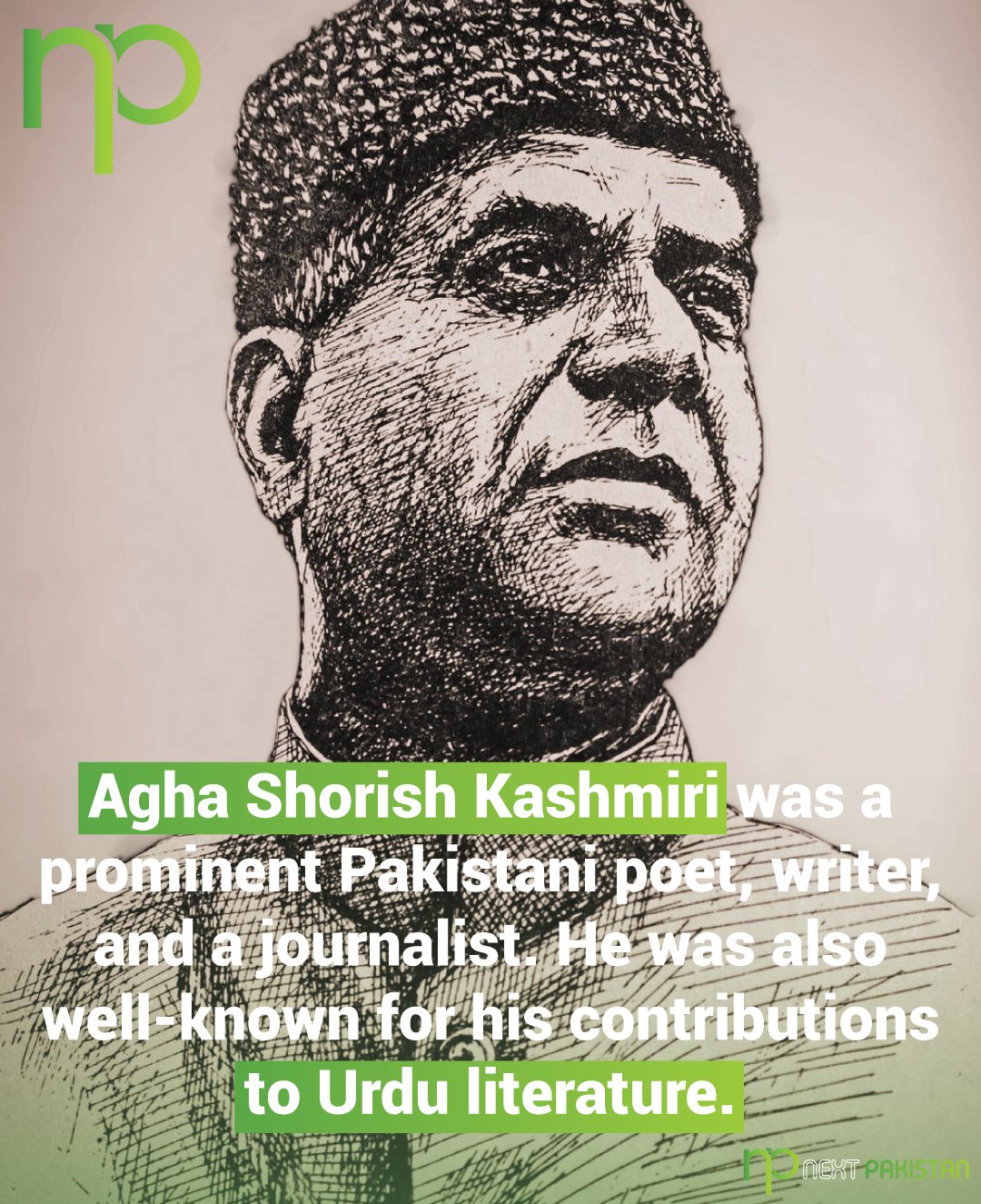
- October 25, 2023
- ubaidah khan
- 0
Agha Shorish Kashmiri was a prominent Pakistani poet, writer, and a journalist. He was also well-known for his contributions to Urdu literature. He was an ardent advocate of social justice, and his writing frequently demonstrated his liberal and progressive ideologies. His efforts and advocacy had a long-lasting impact on Pakistani Urdu journalism and literature.
Early Life and Education
Agha Shorish Kashmiri was born in Amritsar, British India, on February 29, 1913. Later, he changed his name to “Kashmiri” to reflect his Kashmiri origin.
He received his early schooling in Amritsar, where he was exposed to the political and literary influences of the time.
Journalism and Political Career
Agha Shorish Kashmiri was an important figure in Urdu journalism. He co-founded and served as the editor of the influential Urdu weekly magazine “Chattan” in 1946.
Kashmiri began his political career in 1935, when he delivered a landmark speech at the Shaheed Ganj Mosque conference while Maulana Zafar Ali Khan was the President of the Ahrar Party of India. Although he was a student of Maulana Zafar Ali Khan, the bloodshed at the Shaheed Ganj Mosque in 1935 saddened him.
Kashmiri was influenced by Chaudhry Afzal Haq who was an Indian subcontinent political leader, therefore he joined the All-India Majlis-e-Ahrar-e-Islam and the campaign for Ahrar Party.
In 1946, Kashmiri was elected to serve as the Secretary General of All-India Majlis-e-Ahrar-e-Islam.
In 1974, Kashmiri participated in Tehreek-e-Khatme Nabuwwat during the rule of Zulfiqar Ali Bhutto.
Imprisonment
Agha Shorish Kashmiri repeatedly endured political persecution for his activism and fearless writings.
Assassination
Agha Shorish Kashmiri’s life was tragically cut short in 1975 when he was murdered in Lahore, Pakistan, by unidentified men.
Books
The writings of Kashmiri span a wide range of topics, including poetry, literary pieces, historical events, and biographies of prominent people which are given below
- Quaid-i Farang (Book about Maulana Zafar Ali Khan’s imprisonment)
- Kulliyyat-i Shorish Kashmiri (A collection of his poetry)
- Iqbal aur Qadianiyat (On the relationship between Muhammad Iqbal and the Ahmadiyya community)
- Al-Jihad va Al-Jihad (Poetry about the 1965 Indo-Pakistan war)
- Iqbal, Payambar-i Inqilab (Collection of speeches and articles about Muhammad Iqbal)
- Hindustan men Ibn-i Taymiyah (His memories about Abul Kalam Azad)
- Qalmi Chehre (Articles about literary and political figures from South Asia)
- Tahrik i Khatm-i Nubuvvat, 1891 se 1974 tak (On the history of the movement defending the finality of prophethood from 1891 to 1947)
- Cheh Qalandarana Guftam (His poetry)
- Nau Ratan: Lahore ke nau sahafiyon ka ijmali tazkira (Biographical study of nine journalists from Lahore)
- Mazameen-i Shorish (A collection of his literary articles)
- Mirzail; Qadianiyat ka siyasi mahasabah (On the Ahmadiyya community)
- Iqbaliyat-i Shorish (Criticism and interpretation of Muhammad Iqbal’s works)
- Sayyid Ataullah Shah Bukhari: Suvaneh va Afkar (On the life and work of Syed Ata Ullah Shah Bukhari)
- Abul Kalam Azad: Suvaneh o Afkar (On the life and works of Abul Kalam Azad)
- Buay Gul Nala-E-Dil Dood-E-Charagh-E-Mehfil by Shorish Kashmiri
- Pase Diwar E Zindan by Shorish Kashmiri
- These books cover a wide range of subjects, including poetry, literature, history, and the lives of significant individuals.